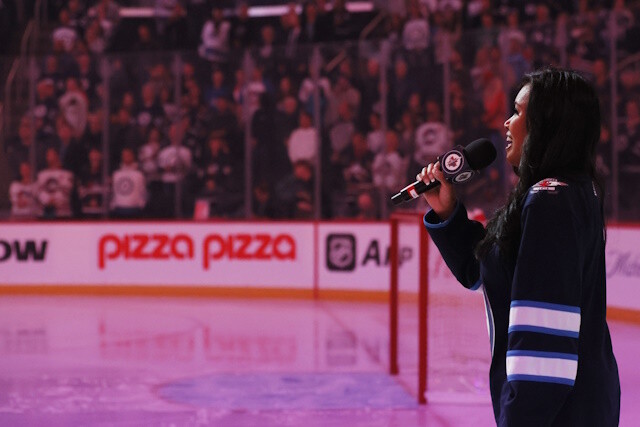TSN: Winnipeg Jets chairman Mark Chipman when asked about the lower attendance and what could happen if it continues.
** NHLRumors.com transcription
Darren Dreger: “So you mentioned 10 years. season ticket base was around 13,000, right? Now it’s under 10,000. You’re a savvy businessman. How long can the business side of the Winnipeg Jets continue to operate if those numbers don’t climb back to what they were?
Chipman: “Well, I, you know, I first of all, I I really believe they will. So I’m not I don’t have a scenario in my mind of you know, what does this look like at 10,000? We’re just really focused on how do we get back to 13. Because we’ve been at 13. We were there for 10 years. So how do we get ourselves back there?
NHL Rumors: Price For William Nylander Only Increases With Early Season Success
That’s where we need to be honestly to be competitive and, and so I don’t know that I’m not savvy, because I don’t have that scenario. I don’t, we don’t have that playbook, you know, how do we run this at 10,000 because we honestly believe we can get it back to where it was.
Dreger: “I was here and covered it daily when the Winnipeg Jets became th Phoenix Coyotes way back in the day. Worked it. Lived it. You lived it. There were good days and there were way too many bad days for the community of Winnipeg. And felt at the time like the heart of Winnipeg got ripped out when the National Hockey League left the city. Which leads me to the next question. Is there any real threat of a sale or relocation if this can’t get turned around?
Chipman: “No. Look. I mean, you hit it on, on the head. Like it ripped the heart out. You know, I remember vividly the broadcast that. where it was definitively leaving and after having worked on it with a number of other people, it was it was beyond heartbreaking. I, you know, I I wept like, like a child.
It was really hard and so but, but I would say to you, that it’s not just my emotion or my feeling that, that I rely upon to say that, you know, that will never happen again. You have to look carefully at the circumstances that existed then versus today, right? There was no building? And, and the prospect of one was tenuous.
More importantly, there was no partnership with the players. There was not a collective agreement between the league and the players that allowed for the economics of hockey to work in Winnipeg back then. It wasn’t until 2004. That, that became a reality.
And it’s a very, very different world today than it was back then. We have this building and it’s, it’s an NHL quality building. We have a great partnership with our players. We have that, you know, that allows for cost redistribution and and a salary cap which allows a lot of teams to exist in this league.
So, I can see how somebody might, how you could ask that question, you know, because it, because it happened once. Is it a concern that could happen again because you’re the smallest market? I’d say, you know, like not on our watch. We’ve been doing this far too long.
We got in into this for the very reason of that heartbreak that you described. It was very emotion that brought us into this. And then that kept us in the fight, to get a building built and then to to acquire a team again.
So, you know, and then to have 10 years of sellouts and have two years of challenge brought on by a global pandemic. That’d be a little extreme, you know, for us to say oh, gee, we’re not sure this works anymore. I think that would be far less than savvy, that would be, that would be really unsettled.”
Dreger: “and unhealthy, if not counterproductive to say, Okay, well, if we’re having this conversation a year from now, I mean, does no good to think that.”
NHL Rumors: Garrioch on the Shane Pinto Situation, and How A Deal Had Been Close
Chipman: “No, I just, we don’t think that way. I don’t allow our folks, our team to think that way. We’re focused on the now, we’re focused on, you know, Chevy’s focused on his job of and you know, delivering the product and we’ve got a plan in place to engage our community again in a respectful way. And I got to say, we’ve got to be very respectful of people’s choices.”



